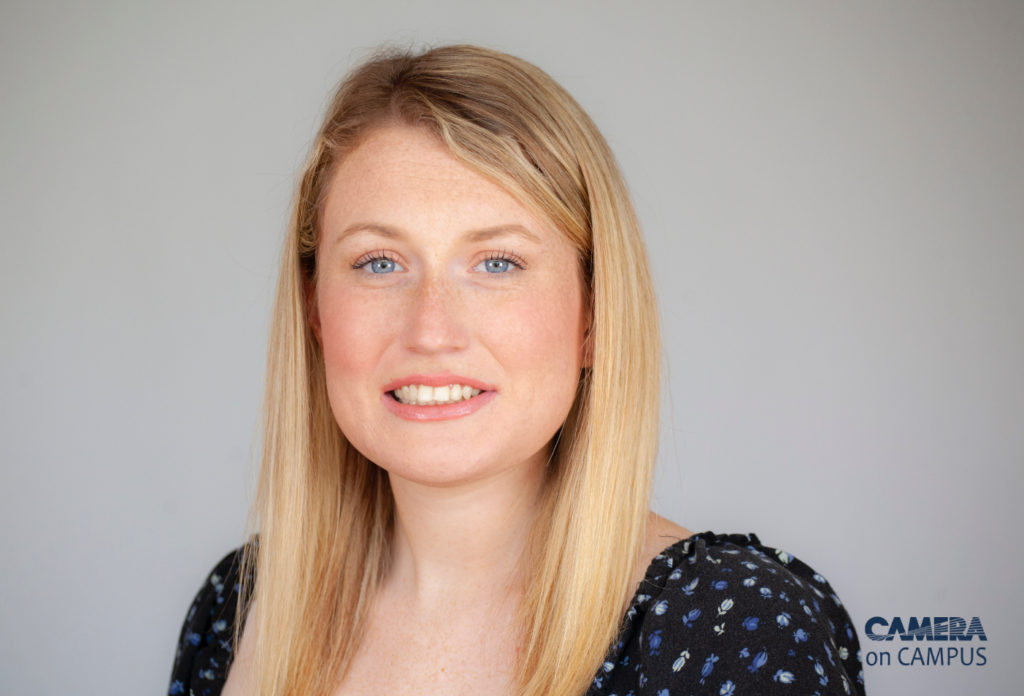Photo: (Israel Defense Forces/Wikimedia Commons)

Some may ask how Israel, a Jewish state, properly represents its minority Arab population.
When speaking at the University of Florida this November, Yoseph Haddad explained exactly this.
As an Arab-Israeli Christian, Haddad demonstrated to students how Arabs, who account for 21% of Israel’s population, play a crucial role in the prosperity of the country.
Christians United for Israel at UF hosted the event in collaboration with the Committee for Accuracy on Middle East Reporting and Analysis on Campus.
Throughout his speech, Haddad shared with students why he has chosen to center his life’s work on advocating for Israel and further helping his fellow Arab men and women feel more included within broader Israeli society.
Before beginning his presentation, Haddad took a moment to demonstrate the reality Israeli citizens face within their country. Attendees of his speech watched as the image of a siren, accompanied by its blaring alert, flashed on the screen.
“Fifteen seconds, that’s all the time there is for children, parents and their families in Israel to find shelter from the time this siren goes off,” Haddad said.
Israeli citizens are all too familiar with this emergency alert system, known as red alert. When it sounds, Israeli men and women immediately realize that rockets are being fired into their country, many of which target schools and homes. In the days leading up to Haddad’s speech, over 360 rockets were fired by Islamic jihadists into Israel.
The purpose of starting his event this way was to demonstrate to students the constant fear Israelis live through. At any moment, there is the possibility that a day at school or a trip to the market could be interrupted by this piercing siren and the realization that, if unable to find shelter, one’s life could end in a quarter of a minute.
It was this frightening realization that caused Haddad to volunteer to serve in the Israel Defense Forces (IDF). Like his fellow citizens, he understood that the right to peacefully exist in the Jewish homeland was not something that was respectfully granted, but had to be constantly fought for.
Haddad shared that serving in the IDF exposed him to the reality that, although differences existed between members of his battalion, they were each fighting to protect, not only themselves, but their loved ones as well.
“We were all equal, we were all brothers serving side by side,” Haddad said. “I can testify that I served in the most humane and moral army in the world.”
“At any moment, there is the possibility that a day at school or a trip to the market could be interrupted by this piercing siren and the realization that, if unable to find shelter, one’s life could end in a quarter of a minute.”
Toward the end of Haddad’s military service in 2006, the Second Lebanon War broke out and lasted for 34 days in Northern Israel between the IDF and Hezbollah, a Shia Islamist militant group based in Lebanon that is notorious for its acts of terror.
Throughout the course of the fighting, Haddad lost seven of his close friends, three commanders and a soldier under his command. Haddad was later injured and suffered multiple wounds when a missile was shot at his forces four days before a ceasefire was established.
Haddad stated that his experience fighting for Israel inspired him to showcase the freedom and prosperity the country represents for him and so many other Arab Israelis. He realized that there were other ways to further defend Israel than fighting in the army.
During his time fighting for Israel, Haddad believed Arab Israeli society within the Jewish state was facing a problem of its own. He realized that this sector, one in which he is a part of and deeply cares about, was not integrating into mainstream Israeli society.
This inspired Haddad to start Vouch for Each Other, an Israeli nonprofit that aims to solve this issue through initiating change that helps Arabs within Israel feel a greater connection to mainstream Israeli society as a whole.
In addition to serving as the CEO of Vouch for Each Other, Haddad also frequently contributes to the Times of Israel and travels across the world to speak to different audiences, especially college students, about why they should support Israel and stand for the Jewish people.
Victor Santos, a 23-year-old UF senior, said that attending Haddad’s speech further exposed him to how critical it is for all students to support the Jewish state.
“His story truly shows how you do not have to be Jewish to support Israel,” Santos said. “You just have to understand that everyone has the right to live and pursue happiness.”
Originally published in The Gainesville Sun.
Contributed by 2019-2020 University of Florida CAMERA Fellow Taylor Roth.
